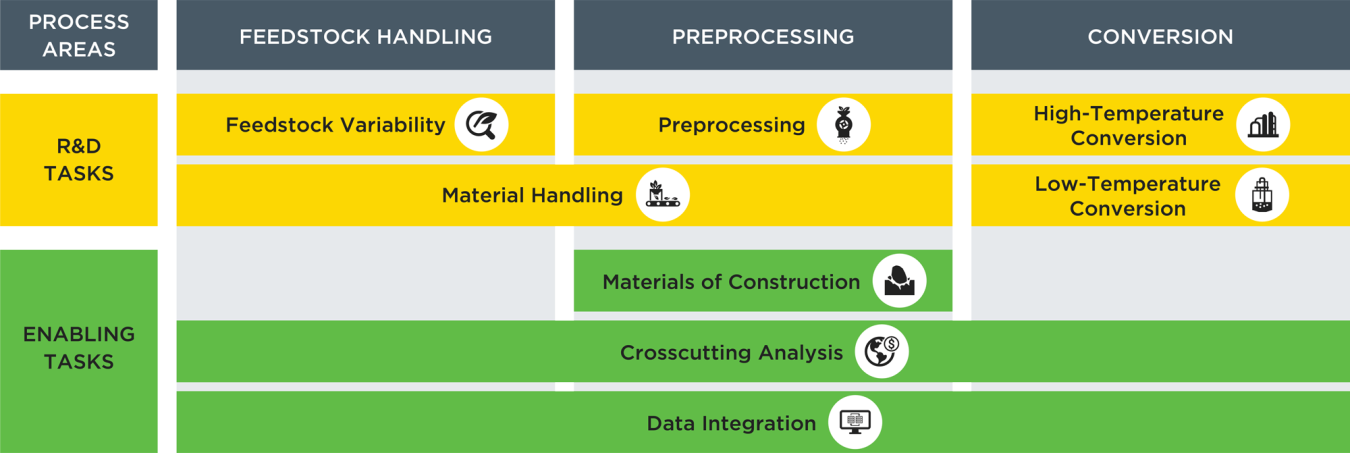FCIC Research
The Feedstock-Conversion Interface Consortium’s (FCIC’s) technical approach is organized into eight complementary tasks that are aligned with operational problem areas. Each task involves contributions from U.S. Department of Energy national laboratories and is designed to provide useful tools for the biorefinery industry.
Research Areas

Providing information, data, and tools that define and quantify biomass variability for bioenergy industry stakeholders.
Mitigating the risks of feedstock variability on the low-temperature conversion of sugar and lignin using experimental and modeling approaches.
Evaluating the impact of feedstock and process variability on economic and sustainability metrics, and performing failure modes and effects analysis to quantify risks.
Understanding the root causes of equipment wear in biomass handling equipment and developing cost-effective approaches to minimize this wear.
Developing science-based design and operation principles to improve the performance and lower the cost of preprocessing unit operations.
Enabling the reliable flow and conversion behavior of high-temperature feedstock conversion processes.
Developing physics-based modeling tools to ensure the reliable bulk flow transport of industry-relevant biomass to the reactor throat.
Facilitating collaboration and consistency by employing software that makes data sharable, accessible, and reusable between national laboratory partners.
Other FCIC Research Resources
Check out the FCIC research area presentations from the Bioenergy Technologies Office 2023 Project Peer Review.
Contact
Questions about the consortium? Contact the FCIC.









